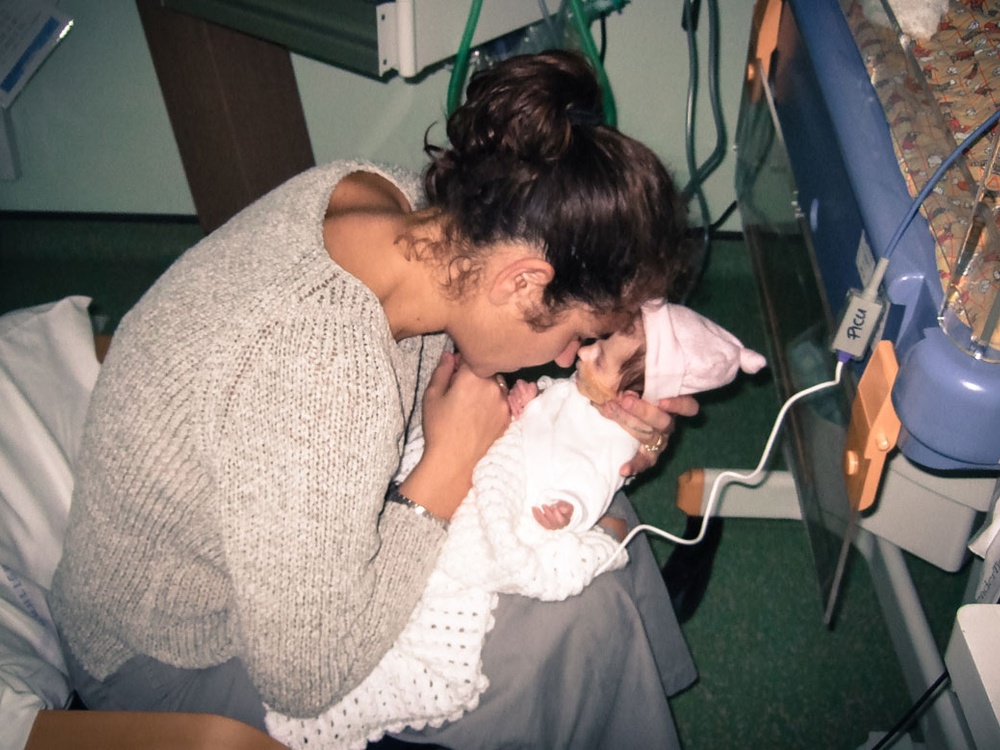I can hardly believe I'm writing this, but this month is the 15th anniversary of The Lily Foundation.
It feels like a really big milestone for our little charity, so I hope you'll join us in celebrating it. Without you, we simply wouldn't be where we are today. We still have a lot of work to do to beat mitochondrial disease, but when you look at what we've achieved together so far, there's plenty to be encouraged about.
Back in 2007, when my daughter Lily was diagnosed, there was hardly any support available for families affected by mitochondrial disease. I'll never forget how overwhelming it felt to be told that my eight-week-old baby was going to die, possibly in a matter of days, and there was nothing the doctors could do for her. Lily was given the best possible care at Evelina Children's Hospital, but so little was known about her disease that even specialist consultants were unable to provide clear answers to all the questions we had.
I don't think there can be a worse agony than knowing your child is dying and not being able to do a thing about it. We couldn't believe that, in this day and age, there was no treatment available for Lily and nothing we could even try. We were desperate for some glimmer of hope. Of course, we searched online for information about mitochondrial disease, but with no trusted source of advice it only left us more confused and frightened.
“There’s a reason why mitochondrial doctors today often say that patients are the real experts in their disease”
Lily fought hard to stay with us, but finally lost her battle with mitochondrial disease when she was eight months old. Losing a baby is devastating, and can be very isolating because no one really knows how to comfort you or what to say. This is especially difficult when the cause is a rare genetic disease most people have never heard of. When I mentioned mitochondrial disease to people, I'd be met with blank looks. Then I'd have to find a way to explain what it was, all while trying to hold myself together. There's a reason why mitochondrial doctors today often say that patients are the real experts in their disease.
For Lily's funeral we decided to ask for donations instead of flowers. Between family and friends we raised about £3,000 for John Radcliffe Hospital in Oxford to buy equipment to help improve diagnosis of mitochondrial diseases. This small act of hope helped bring a sense of meaning to what was otherwise a very painful time. We didn't know it then, but the seeds were planted for what would become The Lily Foundation charity.
Fast forward 15 years, and the amount of donations we've received now totals over £8 million. Our supporters include thousands of other people affected by mitochondrial disorders, as well as doctors, scientists, volunteers, corporate sponsors and all the other amazing people who make The Lily Foundation what it is.
The great thing is that, although we've grown as charity, everything we do still has that family-and-friends feel to it. That's one of the things that makes working for The Lily Foundation so special, and I know that being part of that community brings immense comfort to people who are living with the disease or who have lost someone to it.
“A family diagnosed with mitochondrial disease today has access to far better information and support than was the case 15 years ago”
On the science side, our charity now funds a thriving mitochondrial research programme, committed to investigating potential treatments and improving the lives of patients. At the time of writing we're actively funding 20 pioneering research projects, and we hope to add to that in 2023. We enjoy excellent working relationships with the very best centres of mitochondrial research in the UK and around the world, and are proud to be at the heart of a global conversation about mito that seems to be growing louder by the day.
Working together with our counterparts in other countries, through the umbrella organisation International Mito Patients, gives us a strong, united voice. Where once we were having to shout from the rooftops just to get our message heard, now we have pharmaceutical companies knocking on our door, asking to collaborate. I'd never have dared dream of a situation like that when we started out. It just goes to show how anything is possible!
We still don't have a cure or effective treatment for mitochondrial disease, and that’s a situation we’re working hard to change. But a family diagnosed with mitochondrial disease today has access to far better information and support than was the case 15 years ago and no one, whatever their age or circumstances, needs to face this cruel disease alone. Not only that, but diagnosis and awareness about mitochondrial disease is really improving, with the knock-on effect being that more and more pharmaceutical companies are making it a focus of their research.
These are all significant steps in the fight against mitochondrial disease, and we've made them happen in a relatively short time. There's a real sense of change happening, a gathering of momentum in terms of awareness, research and healthcare for mitochondrial disease patients. For everyone in the mito community, that’s cause for hope. We’re absolutely on the right track to finding a cure. The important thing now is to keep going.
A big, big thank you to all our friends, families and supporters. And happy anniversary!
With hope,
Liz x

